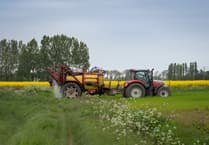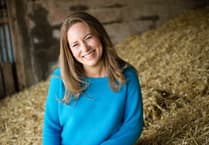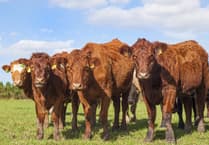The future of Welsh agriculture
By the time this column is read, we will know who is to be our new First Minister. There will be some pomp and splendour as Mark Drakeford officially resigns at the Senedd, sends his resignation to the King and The Llywydd makes an official announcement. Following some internal procedures, Senedd Members vote for the nominee put forward and then he goes back to the King so the First Minister is appointed.
Only then will the new First Minister appoint his Cabinet Ministers and we build a new working relationship, as an Union, with a Cabinet Member. Will Lesley Griffiths retain her position as Rural Affairs Minister? Will a new Minister be at the helm of agriculture and rural affairs? Will we see the creation of a new Ministerial position that oversees Welsh Agriculture and nothing else? Only time will tell.
Whatever happens, you’ll be sure to know that our commitment and endeavours will continue at pace with the new Cabinet. We will continue to pursue positive changes to agricultural policies in Wales, not least the need to rethink the Sustainable Farming Scheme.
Our in-depth consultation response has been submitted, and we’ve summarised those into 10 key priorities. From requesting meaningful support and income to farmers who actively farm and produce sustainable food to agreement on the revised overarching objectives of the SFS. We’ve argued strongly this should be revised in conjunction with both farming unions. This would ensure the objectives of the SFS align with the Welsh Way Forward principles that underpin the 2021-2027 EU CAP framework that governs our main competitors. By doing so, we would minimise any adverse economic impacts felt by businesses, sectors and regions. This may even require changes to the Agriculture (Wales) Act 2023 but that would be a small price to pay for getting these policies right. Yes, the stakes are high, but we have to get this right and we left no stone unturned within our 20,000 word submission to the Welsh Government..
Another important step is to bring together a small focussed design group to consider changes to the SFS and importantly, the associated payment rates. Additionally, sub-groups or panels could also be established to look at different elements of the SFS
However, we all know that finance is key to the success of the overall scheme, so the FUW believes that such a group should also assess the overall budget requirements to deliver different versions of the scheme. This is critical to Welsh agriculture and a case needs to be made to the UK Government for proper funding support. Should the UK Government fall short of supporting Welsh farmers with appropriate funding, then changes would have to be made to the final scheme design.
Welsh Government needs to estimate and plan their revenue and expenses for this scheme, as even more importantly every farm business needs to do the same. Without knowing what our farming members can expect to receive in farm income support, for the next five years, forward planning, long-term investments and the day to day running of a farming business is extremely difficult.
Other FUW priorities include:
- making sure all Universal Actions and Scheme rules are accessible and achievable for every active farmer
- evaluating the science for net zero and carbon sequestration by an independent group of experts to empower farmers, through financial support, to make progress towards net zero sustainably
- using evidence gathered from economic impact assessments and farm business data to ensure payments go beyond income foregone and costs incurred
Changing from the Basic Payment Scheme to the SFS needs to be carefully managed and recognition given to the significance of this change for Welsh agriculture. It is a fundamental change with far-reaching consequences, not only to farm businesses, but to rural communities, companies, Welsh culture and language.




